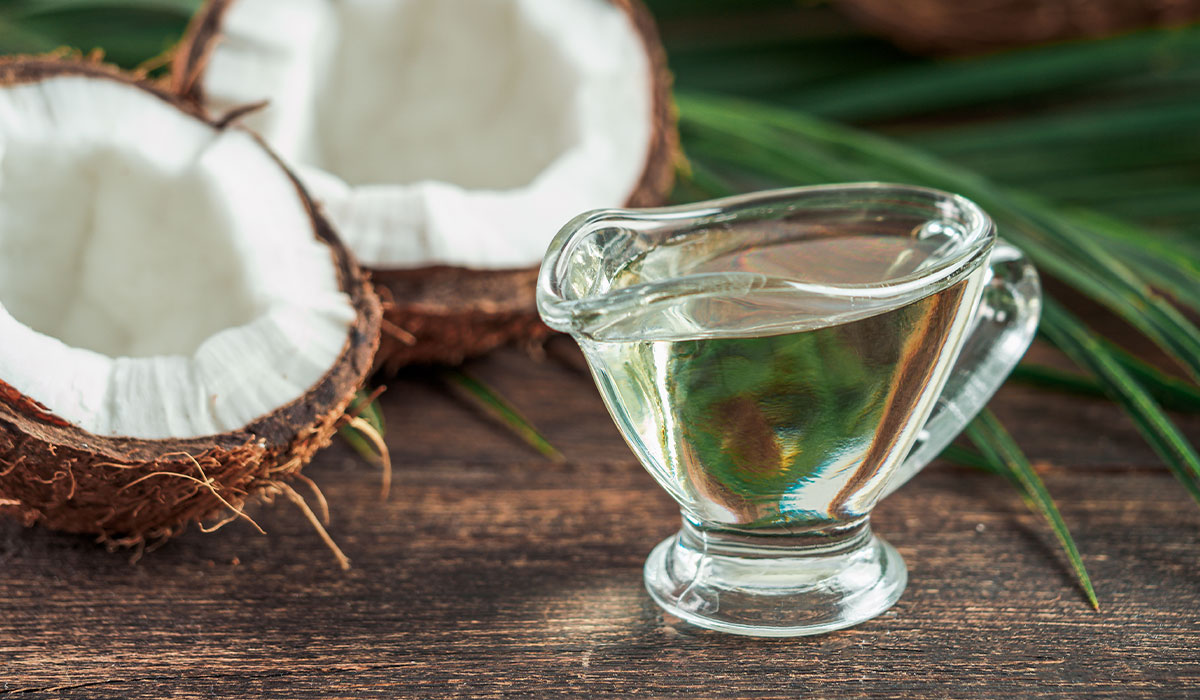SSI Exclusive by Dr. Jose Luis Calderon, M.D. (Harvard, 1982)
How to get skinny on fat: the key to getting your better body in shape in time for Summer.
MCT oil, or medium chain triglyceride oil has become hugely popular recently. Many people spoon some into their coffee every morning to help sharpen the brain or increase energy. But people also often use medium chain triglycerides (also known as medium chain fatty acids) as part of a weight loss diet. Exactly how to use MCT oil for weight loss is a widely debated topic. In this article, we’ll investigate the evidence around MCT oil, how to use it, and its weight loss effectiveness.
The desire to lose weight and achieve a leaner physique has led to the popularity of several diet plans, including the so-called “skinny diets.” One of the most popular skinny diets is the ketogenic diet, which involves consuming high amounts of healthy fats, moderate amounts of protein, and very low amounts of carbohydrates. However, there is a secret ingredient that many people following the keto diet use to boost their weight loss efforts – MCT oil.
MCT oil stands for Medium-Chain Triglyceride oil, which is a type of saturated fat that is found in coconut oil, palm kernel oil, and dairy products. Unlike other fats, MCTs are rapidly metabolized by the liver, where they are converted into ketones, which can be used as fuel for the body.
The use of MCT oil has become increasingly popular among people following the keto diet due to its ability to boost ketone production and promote weight loss. Studies have shown that MCT oil can increase metabolic rate, reduce appetite, and improve overall body composition.
One study conducted in 2016 found that overweight men who consumed MCT oil as part of their diet for four weeks had a significant reduction in body weight, waist circumference, and body fat percentage compared to those who consumed olive oil. The study concluded that MCT oil could be a useful tool for weight management.
Another study conducted in 2018 found that MCT oil could increase the production of ketones, which are the primary fuel source for the body when following the keto diet. The study also found that MCT oil could improve cognitive function and reduce inflammation.
Aside from its weight loss benefits, MCT oil is also a popular ingredient in bulletproof coffee, which is a beverage that combines coffee, MCT oil, and grass-fed butter. The combination of caffeine and MCT oil can provide a sustained energy boost, which can help people stay focused and productive throughout the day.
MCT oil is a powerful tool for people following the keto diet and other skinny diets. Its ability to increase ketone production, promote weight loss, and improve overall body composition has made it a popular ingredient in many weight loss supplements and meal replacement shakes. However, it is essential to use MCT oil in moderation, as excessive consumption can lead to digestive issues and other health problems. As with any dietary supplement, it is essential to consult with a healthcare professional before adding MCT oil to your diet.
How to Use MCT Oil for Weight Loss: A Snapshot
Before going into detail, here’s a quick overview of how to use MCT for weight loss:
- Use a quality MCT oil that contains a high percentage of caprylic acid. Coconut oil is another way to get MCTs, but it contains a much lower concentration of this key MCT.
- A tablespoon of MCT oil with each of your three daily meals is generally a good daily intake. You can add it to your food or drink, but don’t use it for frying, as MCTs will smoke and burn at high heat.
- You’ll also need to include some longer chain fats (ex., from oily fish or nuts) to cover your essential fatty acid needs.
- More isn’t necessarily better when it comes to MCT oil. If your intake is too high (more than 100ml or 7 daily tablespoons), your weight loss could be hampered, and your gut could become upset.
What Are MCTs?
MCT stands for medium-chain triglycerides — a type of fat that’s structurally different than the long-chain variety that most foods contain. MCTs are healthier saturated fat that have a shorter chain of carbon atoms than usual. Butyrate isn’t widely found in food, but butter is a relatively good source.
The Three Most Common MCTs Are:
- Caproic acid (chain length: six carbon atoms)
- Caprylic acid (chain length: eight carbon atoms)
- Capric acid (chain length: 10 carbons)
Another fatty acid, lauric acid, with 12 carbons, is sometimes classified as an MCT. But it is technically not a true medium chain triglyceride and doesn’t have the same benefits.
Due to their shorter length, MCTs are more easily assimilated into the body than longer chain fatty acids (LCTs) found in many other foods. Digesting MCTs doesn’t require bile acids or the digestive enzyme lipase as normal fats do. Instead, they are water-soluble, which allows them to pass directly from the gut into the bloodstream and to the liver [3].
This makes MCTs an immediate source of energy for the body. It also means they are useful for people with fat malabsorption (identifiable by foul-smelling, pale, floating stools).
Fat malabsorption is often a feature in SIBO (small intestinal bacterial overgrowth syndrome), in which bacteria start to grow higher in the digestive tract than they should [4].
How MCT Could Help Weight Loss
There are various ways that MCTs could contribute to weight loss. These include effects on satiety and cravings, hormones, and energy balance. For example:
A 2019 study found that MCTs were more satiating than long-chain triglycerides (LCTs), especially when consumed in liquid form (ex., added to a shake), as they led to lower food intake over a 24-hour period.
Another study found that, compared with LCTs, MCTs cause greater increases in the appetite hormones peptide YY and leptin, which in turn increase feelings of fullness.
MCTs also have a lower caloric value than LCTs. Though we don’t recommend hyper-focusing on counting calories, calorie reduction can be important for weight loss. MCTs may help here, as they contain about 10% fewer calories than LCTs (8.4 calories per gram versus 9.2 calories per gram).
MCTs also increase the number of calories used in the processing and digestion of food (so called dietary-induced thermogenesis, or DIT). A 2016 systematic review and meta-analysis found that meals containing MCT oil resulted in higher energy expenditure than those containing LCTs.
MCT oil may also help keep the gut lining healthy and encourage a more optimal balance of good bacteria. This can also help with managing weight.
What MCT Oil-Related Weight Loss Does Research Support? How do these theoretical benefits of MCT oil translate to actual weight lost in clinical trials? A 2015 systematic review and meta-analysis showed that swapping LCTs for MCTs for three weeks or longer led to:
- A body weight loss of around 1 pound (0.51kg)
- A reduction of just over half an inch (1.46cm) in waist circumference
- Some fat loss from underneath the skin as well as around the organs
Another systematic review that also looked at the effect on weight and body composition of replacing LCTs with MCT found similar results. In truth, these effects are fairly modest. The researchers also comment, in both reviews, that the results could have been biased because some studies were sponsored by supplement companies. Larger independent studies are needed. Nonetheless, it seems that MCTs have a valuable edge over other fats when it comes to weight loss.




